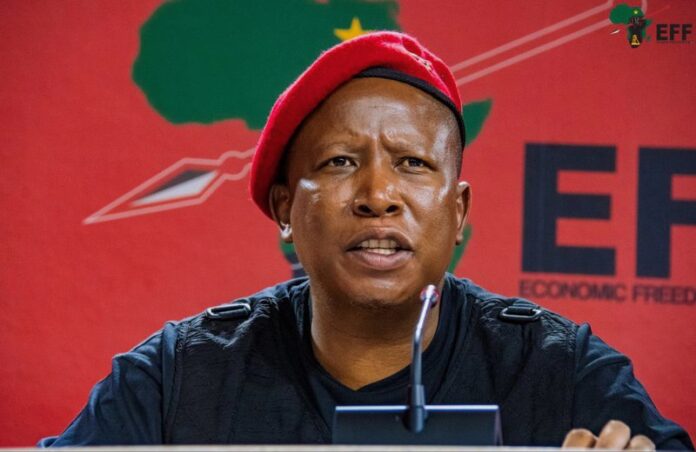CAPE TOWN—The parliamentary ad hoc committee investigating explosive Mkhwanazi’s allegations of criminality and political interference within the South African Police Service (SAPS) was dramatically rescued from a fatal procedural flaw this week, thanks to the vigilance of EFF leader Julius Malema.
His insistence on strict adherence to constitutional procedure has been hailed as a crucial move that safeguarded the committee’s integrity and guaranteed the legal strength of its eventual findings.
The inquiry, established to probe allegations made by KwaZulu-Natal Police Commissioner Lieutenant-General, was forced to adjourn its first public hearing moments before he was set to testify.
The controversy erupted when the committee’s legal team presented Mkhwanazi’s primary evidence as a “supplementary statement” previously submitted to the Madlanga Commission of Inquiry—an investigation set up by the Executive arm of government.
The Constitutional stand: Why it was essential
Malema immediately led the objection, arguing that Parliament could not begin its work by relying on documentation tied to an executive process.
“We are not a subcommittee of the Madlanga Commission,” Malema declared. “It is unconstitutional. The proper way is, there must be an original statement to us, the ad hoc committee.”
This procedural intervention was vital for three reasons, ensuring the committee can deliver a final report that withstands legal scrutiny and political contestation:
1. Preserving Constitutional Independence: By rejecting the Executive’s evidence as its starting point, Malema forced the committee to assert its authority as a separate, independent arm of the state.
Had the committee proceeded, it would have been functionally seen as playing “second fiddle” to the Executive’s commission. This intervention ensured that the Parliament’s final report will reflect independent legislative oversight, free from the perception of being subordinate to the very Executive it is tasked with holding accountable.
2. Securing the Legal Integrity of Evidence: For the committee’s findings to be legally binding and defensible, all evidence must be properly obtained and sworn in according to parliamentary rules.
As Malema noted, using a mere “supplementary statement” as the primary source meant the General was not “properly before” the committee and had not taken an oath on that specific document for the parliamentary record. This legal hole would have provided a clear avenue for any implicated official to challenge and nullify the committee’s final findings in a court of law.
Malema’s action guarantees the evidence gathered will be formally converted into an unassailable parliamentary record.
3. Upholding Public Trust: The serious nature of the corruption allegations demanded a professional and rigorous inquiry. Proceeding with an obvious and fundamental procedural error on the very first day risked destroying the committee’s credibility with the public and stakeholders.
By forcing an adjournment to fix the legal foundation, Malema saved the committee from a start that was widely described by other MPs as “embarrassing,” demonstrating a commitment to due process that is essential for a high-stakes anti-corruption investigation.
Following the objection, the committee was forced to adjourn to compel Mkhwanazi to draft an original, sworn affidavit specifically for the parliamentary inquiry.
While it caused an initial delay, the move was a critical preventative measure, ensuring that when the ad hoc committee does resume, its foundation will be procedurally sound and its eventual recommendations will carry the full weight of the Constitution and the National Assembly.

